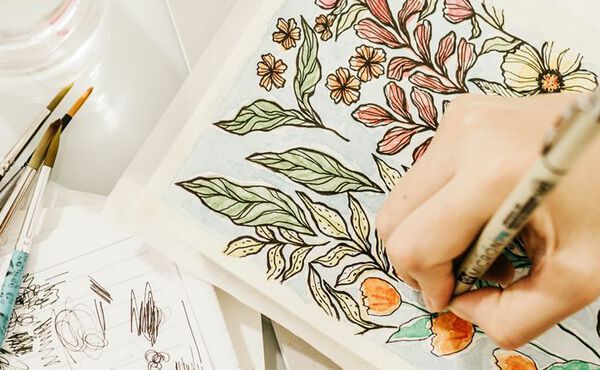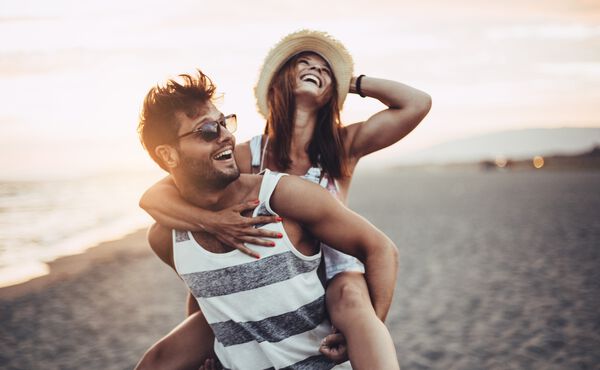Are we born to be kind or is it something we can learn? We explore why kindness is key to making the world a better place and the surprising health benefits it can have.
What is kindness?
The Oxford Dictionary defines kindness as ‘the quality of being kind’ and ‘a kind or helpful act’, but in reality, it is far more nuanced than that because true kindness also involves not expecting anything in return. However, when we are kind there are some natural kindness kickbacks that occur, “kindness nourishes our soul, it nurtures relationships, families and communities but it also helps us feel good about ourselves and our place in the world,” says psychologist Suzy Reading.
Why kindness is good for you
Being kind quite literally makes you feel warm and fuzzy inside. “When we engage in kind acts the feel-good neurotransmitter, dopamine, is released giving us a ‘helper’s high’,” explains Suzy. Scientific research has also shown that kindness activates the pleasure centre of our brain, which boosts levels of serotonin, the chemical messenger that stabilises our mood . Meaning self-esteem is higher and depression and anxiety levels are lower. Increased serotonin can also improve our sleep, but there are some other, perhaps more surprising health benefits too. Research has revealed that when we are kind our heart rate drops and our stress levels lower. When this happens our immune system strengthens and our risk of disease also decreases. This is all thanks to a very clever hormone called oxytocin, also known as the happiness hormone. “Oxytocin is often associated with reproduction, breast feeding and social behaviour,” writes ‘kindness scientist’ and pharmaceutical chemist, Dr David Hamilton, “however it also plays a crucial role throughout the cardiovascular system, the immune system, the digestive system, the process of making stem cells into muscle cells, heart cells and even skin cells. Without oxytocin, we quite simply would not be here. Now read this another way - without kindness, we quite simply would not be here.”

Can we learn to be kind?
The good news is that we are all hard-wired to be kind. “Humans are born with kindness genes, the most prominent being oxytocin,” explains Dr Hamilton. “It causes mothers to love their children, thus ensuring the continuation of the human species, and it also causes us to help each other and work for a common good. We all have a varying degree of kindness and, of course, life happens, which can cause us to be selfish, but we all have the oxytocin gene. And how a person behaves is often a product of learning, or circumstances, or even their early background.” Which is why teaching kindness has become of utmost importance around the world and indeed a skill that we can all increase and encourage.
The Red Cross supplies schools with resources so that kindness can be taught in the classroom allowing children from a young age to see the benefits of choosing kindness over anything else. Global charity, kindness.org also knows the importance of teaching and kindness from a young age and have a programme designed for teachers and school, however they have taken things a few steps further and work with corporations to help foster a working environment founded on kindness, as well as working with consumer brands to show how they can amplify kindness-led messages. And in 1998, the World Kindness Movement - an international non-governmental organisation that seeks to connect nations together to create a kinder world - launched World Kindness Day, an annual celebration, that this year takes place on 13th November 2022, to give communities a dedicated time to highlight and focus on all the good deeds that have been done in their local area. Kindness may very well start with an individual, but these organisations show, that one act of kindness can spread into a community, then across a country so that hopefully one day kindness will spread across the entire world. Here’s hoping.
What to do when kindness is not reciprocated
Even though our genetic default is set to be kind, sometimes people - including ourselves - don’t choose the kind option. There are lots of reasons why this happens; circumstance, the environment they’re in and, sadly, because some of us have forgotten what it’s like to be shown kindness and therefore give kindness back. “Because true kindness is all about extending care and friendliness without the expectation of praise or reward in return that doesn’t mean that it’s not painful to give and not receive kindness in return,” says Suzy. “However, my advice would be that it’s important to take pride in our own behaviour and it always helps to remember the mantra: hurt people hurt people.”
How to be kind to yourself and others
These small acts of kindness can easily become part of your day, every day, to boost your own happiness levels as well as those you meet along the way.
Morning kindness
When you wake up, instead of mindlessly scrolling on your phone, send a message to someone you love telling them how much you appreciate them.
Kindness commute
Getting to work can be stressful so why not try and extend a little kindness to your fellow commuters. It could be keeping the door open for the next passenger, letting another car in front of you, leaving a note saying ‘hi’ in the basket of the hire bicycle for the next user.
Acknowledge a kindness
When someone does something kind for you, thank them for it. Or if you want to cement their kind act in the meta verse, head to channel kindness.org (part of Lady Gaga’s Born This Way foundation) where people record all the kind acts they’ve seen and experienced from across the world.
Pay it forward
Kindness is contagious; when someone is kind to you, you are more likely to be kind to someone else. This is the ‘pay it forward’ notion and there are lots of ways to implement it in your day - you can pay for the coffee of the person standing behind you in line, or the bus fare of the person behind you.
Kindness in the office
Carry on with your moments of kindness in your working day by doing simple things for your colleagues such as making a pot of coffee that you can enjoy together, rather than making a single cup for yourself.
Simply smile
“Sometimes it’s the tiny moments in life that get overlooked but can make a real impact. By smiling at someone across the supermarket, you are sharing a moment of connection and acknowledging them, and that’s a great way to bring a nice moment into someone else’s life,” says psychologist, Jess Baker.
End with some self-kindness
“I am an advocate for self-kindness,” says Suzy. “Beautiful things bloom from tender self-talk and soothing touch like bringing your hands to your heart, taking time to breath properly and repeating a few kind words to yourself before you end your day.”
Want to know more about kindness? Our first ever book, The Book of Rituals, delves deep into this topic and so much more. Featuring inspirational articles, unique art work and wellbeing wisdom, this luxurious coffee table book is the ultimate guide to soulful living. Click here to shop The Book of Rituals.
-
Promotions
Bekijk alle details€15,92 Product value €19,90





.jpg?sw=600&sh=370&sm=fit&cx=0&cy=0&cw=600&ch=370&sfrm=jpg)

.jpg?sw=600&sh=370&sm=fit&cx=0&cy=0&cw=600&ch=370&sfrm=jpg)

